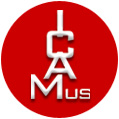5 June 2015. “Intersections/Intersezioni” Conference, Florence. An ICAMus session of papers and live music performance.
An ICAMus Session at "Intersections/Intersezioni".
ICAMus presents a session of papers and live music performance at the “Intersections/Intersezioni” Conference (Florence, June 5-7, 2015). Due to limited seating, only registered participants and invited guests are encouraged to attend the session. Thank you.
The event is sponsored by N.E.V.I.S. (New Echoes and Voices in Italian Studies), NeMLA (North East Modern Language Association), GEORGETOWN UNIVERSITY, CALIFORNIA STATE UNIVERSITY, Chico, THE COLLEGE OF VISUAL AND PERFORMING ARTS - TEXAS TECH UNIVERSITY, SCHOOL OF HUMANITIES AND SOCIAL SCIENCES - THE COLLEGE OF NEW JERSEY, BOISE STATE UNIVERSITY. The Conference is hosted by KENT STATE UNIVERSITY, FLORENCE PROGRAM - ITALY, ACCADEMIA EUROPEA DI FIRENZE, and CALIFORNIA STATE UNIVERSITY, INTERNATIONAL PROGRAM - FLORENCE, ITALY.
The ICAMus Session focuses on Florence-Born US Composer Mario Castelnuovo-Tedesco (1895-1968) and his unpublished settings of Whitman & Shakespeare poetry. The Session includes live performance of rare, unpublished songs. Participants: Aloma Bardi, Salvatore Champagne, Howard Lubin, and John Champagne; special guests: Mila De Santis, and Eleonora Negri.
The ICAMus Session Takes place at Palazzo dei Cerchi, Vicolo dei Cerchi 1, where Kent State University, Florence Program is located, on June 5, 2015.
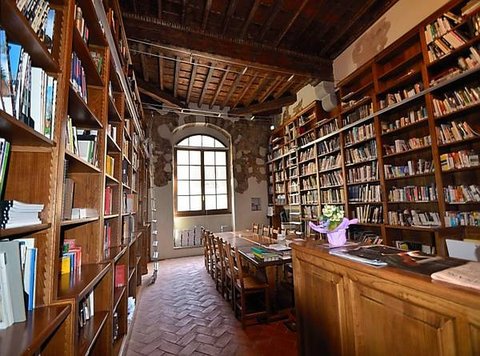
Session Description and Program.
Florence-Born US Composer Mario Castelnuovo-Tedesco
(1895-1968)
And His Unpublished Settings of Whitman & Shakespeare Poetry.
With Live Performance
Description
Florentine Jewish pianist and composer Mario Castelnuovo-Tedesco was a highly educated, internationally renowned, and largely published musician. In 1939 he fled Italy following the enforcement of the Racial Laws. In the United States, he became an American citizen and an American composer; as such, he gave a significant contribution to film music, while still producing a large output of concert music.
Castelnuovo-Tedesco’s unpublished settings of American poets, particularly Whitman, and of Shakespeare’s Sonnets are a unique dialogue between music and poetry, and between the Old and the New World. A daring choice during the fascist era, the Whitman settings were written in Italy in 1936; the Shakespeare Sonnets reveal the composer's continuing love for poetry and the English language in later years. This proposal wishes in turn to establish a dialogue between the “Intersections” Conference and the June 8, 2015 Florence events of ICAMus, in collaboration with Oberlin Conservatory of Music, The University of Florence (Dipartimento di Storia, Archeologia, Geografia, Arte e Spettacolo SAGAS dell'Università degli Studi di Firenze – Dottorato interuniversitario Pegaso - Regione Toscana in Storia delle Arti e Storia dello Spettacolo, and Lyceum Club Internazionale Firenze - Sezione Musica. There is no duplication of content within the 2 events ("Intersections" Conference and June 8th). This event is presented and coordinated by ICAMus, that has made this project possible.
Program
Aloma Bardi (ICAMus - The International Center for American Music) - Introduction. Castelnuovo-Tedesco’s unpublished settings of Whitman and Shakespeare.
Salvatore Champagne (Oberlin Conservatory of Music) Tenor; Howard Lubin (Oberlin Conservatory of Music) Piano - Live performance of song selection; Unpublished pieces and premieres.
John Champagne (Penn State Behrend) - Castelnuovo-Tedesco’s "Leaves of Grass" and the ambiguities of Whitman’s reception under Italian Fascism.
Mila De Santis (The University of Florence), Eleonora Negri (Lyceum Internazionale Firenze and The University of Florence) - Italian American music studies. Greeting on behalf of Florentine institutions and invitation to “Intersections” Conference participants to attend as special guests the June 8, 2015 events in Florence.
Total Duration: A Session of 90 mins., inclusive of live performance of rare, unpublished songs of Italian American composer Mario Castelnuovo-Tedesco, and of discussion time.
Musical Program.
MARIO CASTELNUOVO-TEDESCO
(1895-1968)
Louisiana
Poem: Walt Whitman, 1819-1892.
Op. 89a; composed: 1936; published: Galaxy Music Corp., 1940.
Recuerdo
Poem: Edna St. Vincent Millay, 1892-1950.
Op. 105; composed: 1941; published: Fischer, 1941.
The Legend of Jonas Bronck
Poem: Arthur Guiterman, 1871-1943.
Composed: 1941; published: Galaxy Music Corp., 1941.
At end of manuscript score, Mario Castelnuovo-Tedesco’s handwritten copy of Guiterman’s poem.
Leaves of Grass: IX. Trickle Drops!
Poem: Walt Whitman, 1891-1892.
10-Song Cycle op. 89b; composed: 1936; unpublished ms., The Library of Congress Music Division.
Shakespeare Sonnets: Sonnet XVIII. Shall I compare thee to a summer’s day?
Poem: William Shakespeare, 1564-1616.
Composed: 1944; unpublished manuscript, The Library of Congress Music Division.
SALVATORE CHAMPAGNE, tenor
HOWARD LUBIN, piano
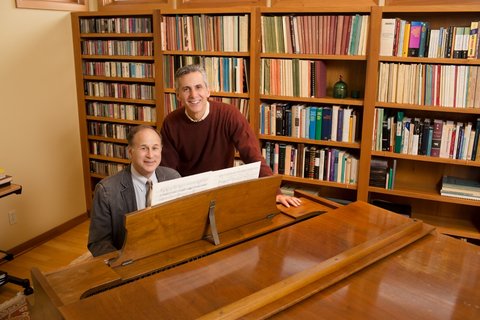
TEXTS
Louisiana
Walt Whitman
I saw in Louisiana a live-oak growing,
All alone stood it and the moss hung down from the branches,
Without any companion it grew there uttering joyous leaves of dark green,
And its look, rude, unbending, lusty, made me think of myself,
But I wonder’d how it could utter joyous leaves standing alone there without its friend,
Its lover near, for I knew I could not,
And I broke off a twig with a certain number of leaves upon it, and twined around it a little moss,
And brought it away, and I have placed it in sight in my room,
It is not needed to remind me as of my own dear friends,
(For I believe lately I think of little else than of them,)
Yet it remains to me a curious token, it makes me think of manly love;
For all that, and though the live-oak glistens there in Louisiana solitary in a wide flat place,
Uttering joyous leaves all its life without a friend a lover near,
I know very well I could not.
Recuerdo
Edna St. Vincent Millay
We were very tired, we were very merry—
We had gone back and forth all night on the ferry.
It was bare and bright, and smelled like a stable—
But we looked into a fire, we leaned across a table,
We lay on a hill-top underneath the moon;
And the whistles kept blowing, and the dawn came soon.
We were very tired, we were very merry—
We had gone back and forth all night on the ferry;
And you ate an apple, and I ate a pear,
From a dozen of each we had bought somewhere;
And the sky went wan, and the wind came cold,
And the sun rose dripping, a bucketful of gold.
We were very tired, we were very merry,
We had gone back and forth all night on the ferry.
We hailed, “Good morrow, mother!” to a shawl-covered head,
And bought a morning paper, which neither of us read;
And she wept, “God bless you!” for the apples and pears,
And we gave her all our money but our subway fares.
The Legend of Jonas Bronck
Arthur Guiterman
With sword and Bible, brood and dame,
Across the seas from Denmark came
Stout Jonas Bronck. He roved among
The wooden vales of Ah-qua-hung.
“Good sooth! On ev’ry hand,” quoth he,
“Are pleasant lands and fair to see;
But which were best to plow and till.
And meetest both for manse and mill?”
“Bronck! Bronck! Bronck!”
Called the frogs from the reeds of the river;
“Bronck! Bronck! Bronck!”
From the marshes and pools of the stream.
“Here let your journeyings cease;
Blest of the Bounteous Giver.
Yours is the Valley of Peace,
Here is the home of your dream.”
“O-ho!” laughed Jonas Bronck; “I ween
These pop-eyed elves in bottle-green
Do call my name to show the spot
Predestined! Here I cast my lot!”
So there he reared his dwelling place
And built a mill, with wheel and race.
And even now, beneath the hill
When summer nights are fair and still:
“Bronck! Bronck! Bronck!”
Rise the cadenced batrachian numbers;
“Bronck! Bronck! Bronck!”
Chant a myriad chorister gnomes;
“High on the shadowy crest,
Under the hemlock he slumbers,
Here is the region of rest,
Come to our Valley of Homes!”
Leaves of Grass: IX. Trickle drops!
Walt Whitman
Trickle drops! my blue veins leaving!
O drops of me! trickle, slow drops,
Candid from me falling, drip, bleeding drops,
From wounds made to free you whence you were prison’d,
From my face, from my forehead and lips,
From my breast, from within where I was conceal’d, press forth
red drops, confession drops,
Stain every page, stain every song I sing, every word I say,
bloody drops,
Let them know your scarlet heat, let them glisten,
Saturate them with yourself all ashamed and wet,
Glow upon all I have written or shall write, bleeding drops,
Let it all be seen in your light, blushing drops.
Shakespeare Sonnets: XVIII. Shall I compare thee to a summer’s day?
William Shakespeare
Shall I compare thee to a summer’s day?
Thou art more lovely and more temperate:
Rough winds do shake the darling buds of May,
And summer’s lease hath all too short a date:
Sometime too hot the eye of heaven shines,
And often is his gold complexion dimm’d;
And every fair from fair sometime declines,
By chance, or nature’s changing course, untrimm’d;
But thy eternal summer shall not fade,
Nor lose possession of that fair thou owest;
Nor shall Death brag thou wander’st in his shade,
When in eternal lines to time thou growest;
So long as men can breathe or eyes can see,
So long lives this, and this gives life to thee.
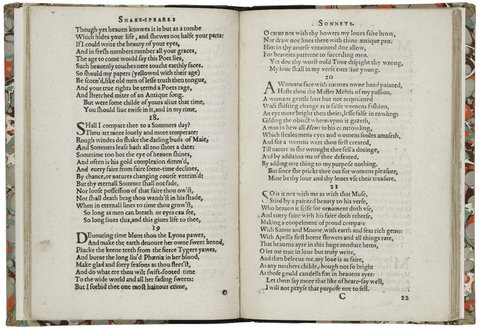
Event Program and Song Texts (PDF).
PLEASE DOWNLOAD THE PROGRAM AND SONG TEXTS (PDF) OF THE "INTERSECTIONS/INTERSEZIONI" CONFERENCE, ICAMus SESSION, JUNE 5th, 2015.
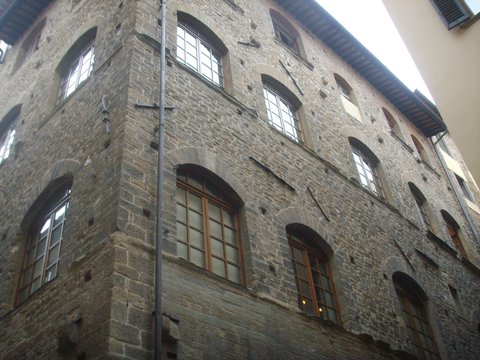
Dedication, Acknowledgments, Credits.
ICAMus Dedicates This Project To The Memory Of
Lisbeth M. Stone Castelnuovo-Tedesco
(1936-2014)
Ms. Castelnuovo-Tedesco constantly granted support to the research, as well as permission to study and reproduce unpublished musical sources. She was married to Pietro Castelnuovo-Tedesco (1925-1998), the composer’s elder son. A noted Italian medieval art historian, for many years Dr. Lisbeth Castelnuovo-Tedesco was the copyright manager for Mario Castelnuovo-Tedesco’s music, and was committed to its promotion.
Special thanks to:
James Westby, longtime scholar of Castelnuovo-Tedesco’s biography, music, and catalogue of works, for his generous encouragement and support, and for providing constant historical advice and research materials.
The Castelnuovo-Tedesco family:
Diana Castelnuovo-Tedesco for her tireless assistance and encouragement with Castelnuovo-Tedesco’s music, and for facilitating the research.
Costanza Castelnuovo-Tedesco.
Marinetta Piva.
The Library of Congress Music Division, Susan Vita, Head; Katherine Rivers, special collections curator, for her invaluable expertise and generous help with the Castelnuovo-Tedesco Papers; the music librarians for their assistance with the published and unpublished sources of the Collection.
Salvatore Champagne, Howard Lubin, John Champagne, Mila De Santis, Eleonora Negri.
Dipartimento di Storia, Archeologia, Geografia, Arte e Spettacolo (SAGAS) dell'Università degli Studi di Firenze – Dottorato interuniversitario Pegaso - Regione Toscana in Storia delle Arti e Storia dello Spettacolo.
Lyceum Club Internazionale di Firenze - Sezione Musica.
Oberlin College & Conservatory.
Oberlin Music.
The research and coordination work for the Castelnuovo-Tedesco project has been carried out by Aloma Bardi for ICAMus.
